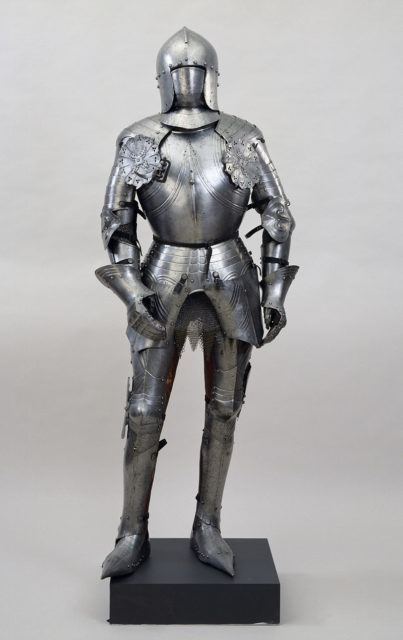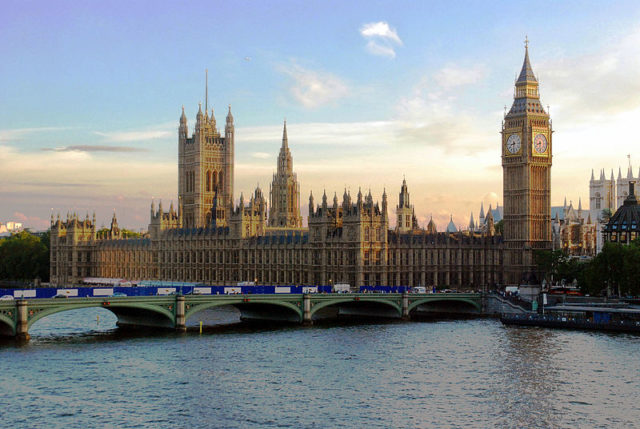It is almost 700 years since King Edward II inscribed the words “Le Roy le veult” on a scroll which banned MPs from wearing armor or carrying arms into Parliament. This law, known as the Statutum de Defensione Portandi Arma, came into force on the 30th of October 1313, and it has never been rewritten or altered. Even today, an MP cannot walk into the House of Common wearing a bullet-proof vest, and the Lords are forbidden to bring a sword into the House.

The law was enacted for the reason that “certain individuals” had disturbed prior disputes on the previous occasions when the King had tried to summon a Parliament. Trying to figure out why such strife took place has proved relatively problematic. A number of possibilities have been suggested, such as the worsening war in Scotland, and rumors of the King’s infatuation with males in the court. When the present monarch goes to the Palace of Westminster, she has an honor guard which are carrying weapons, and there are armed police stationed around the building. Inside the Houses of Parliament themselves, only the Black Rod or Serjeant-at-Arms customarily carries a sword.
However, weapons themselves are not banned in Parliament: the bill only relates to the MPs and Lords. Although it is probably not advisable, an ordinary person could, in theory, step into the Commons holding a sword. It is traditionally held that the distance between the government and opposition benches in the House of Commons stands at 3.96 meters, a distance equivalent the span of two swords. However, this is probably only symbolic, as swords had been forbidden for hundreds of years before the current chamber was constructed.
After 700 years, this is one of the oldest surviving laws in Britain. The Statute of Marlborough Act, enacted in 1267, is the oldest piece of statute law in the United Kingdom that has not yet been repealed. If you ever get the chance to go on a tour of Parliament, you may see ribbons dangling on the coat hangers in the cloakrooms; these were made for swords, in case the arriving MPs needed somewhere to leave their weapons while they were in the Main Chamber.

The bill, in modern English, approximately reads as follows:
The King, to the Lieutenant, the Treasure and the Barons of the Exchequer, sendeth Greeting.
Whereas of late before certain Persons deputed to treat upon sundry Debates had between Us and certain great Men of our Realm, amongst other things it was accorded, That in our next Parliament after, Provision shall be made by Us, and the common assent of the Prelates, Earls, and Barons, that in all Parliaments, Treatises, and other Assemblies, which should be made in the Realm of England forever, that every Man shall come without all Force and without Armor, well and peaceably, to the Honor of Us, and the Peace of Us and our Realm; and now in our next Parliament Prelates, Earls, Barons, and the Commonalty of our Realm, there assembled to take Advice of this Business, have said, that to Us it belongeth, and our part is, through our Royal Seigniory, straitly to defend wearing of Armor, and all other Force against our Peace, at all Times when it shall please Us, and to punish them which shall do contrary, according to our Laws and Usages of our Realm; and hereunto they are bound to aid Us as their Sovereign Lord at all Seasons, when need shall be;
We command you, that ye cause these Things to be read afore you in the said Exchequer, and there to be enrolled, Given at Westminster, the thirtieth day of October.
